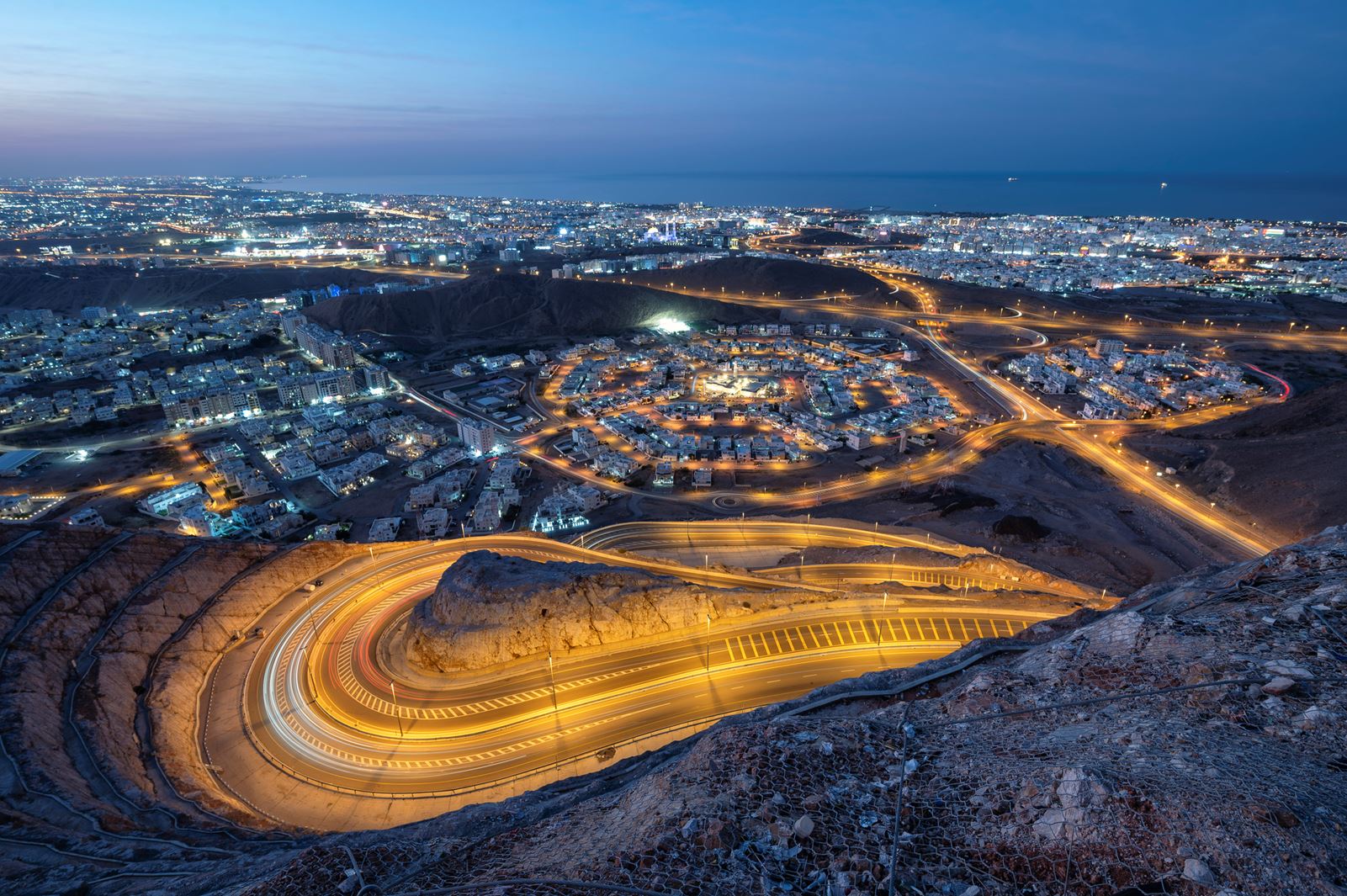The article below is part of our Member Spotlight series, which are articles written and submitted by our BOS members. This piece is written by BOS member Stefan Noël Hageman who is a development economist with extensive experience in Oman and across the Middle East, North Africa, and Europe.

As a political economist, I am fascinated by institutional reforms in post-petro societies, and the extensive history of Oman as a trading nation makes its reform processes all the more interesting. Many of the reforms proposed revolve around the Omani Vision 2040. Launched in 2020, aiming to transform Oman’s economy, Vision 2040 seeks to reduce dependence on hydrocarbons, foster a knowledge-based economy, and ensure sustainable and inclusive growth. Through sector-specific investments, decentralisation and economic and fiscal reforms, the government of Sultan Haitham aims to prepare Oman for post-petroleum.
The Sultanate has an exceptional and fascinating history as a trading nation, actively partaking in the Indian Ocean trade. However, following the rise of colonial commerce in the 19th and the discovery of oil in the 20th century, the Omani economy had largely become dependent on resource extraction and the sale of oil and gas. With the rise of the modern Omani state during Sultan Qaboos’ renaissance era, petrodependency came to dominate many of the Sultanate’s economic and fiscal policies. More recently, however, global economic shocks and fluctuating oil prices highlighted the need for economic diversification, and the Sultanate has started extensive reform processes, to modernise and diversify its economic output.
As late as the 19th century, Oman played a pivotal role in the Eastern-African and Indian Ocean trade. The Sultanate, which consisted primarily of Muscat and Mutrah, the island of Zanzibar and a loosely controlled hinterland stretching from Dhofar to Musandam, partook in an early form of international commerce based around exporting and – primarily – importing and trading goods produced in Africa, Yemen, Persia and India. This mercantile, seafaring history has left a stark impression on Omani culture, religion and identity, with Oman being generally tolerant, trade-oriented and historically well-connected to the Indian Ocean states.
Modern commerce and colonial activities saw this role largely diminished, as the Dutch and Portuguese, and later the British, monopolised trade in the region. The island of Zanzibar gained independence, only to be overtaken by the British Empire, and the Sultanate of Oman itself found itself as a de facto protectorate to the Crown due to its strategic location, facing the Indian Ocean and controlling the Gulf through the Musandam peninsula. Additionally, the discovery of oil and gas reserves saw the Sultanate increasingly re-positioning itself as a resource extraction-based economy.
Especially this last shift has largely determined the buildup of the modern Omani state: the emergence of a resource-based, relatively stable source of revenue allowed the economy to develop under a state-controlled network of initial hand-outs and buy-offs. With much of the Omani Renaissance being sponsored by petrodollars, there was little incentive on the government’s side to tax its citizens or to diversify its economy – a practice found in many petrostates, especially on the Arab Peninsula. Meanwhile, providing central subsidies allowed the state to control sections of the country that might otherwise have been prone to vie for increased autonomy. This system has allowed for a relatively stable centralised state to emerge.
However, the increasingly volatile revenue streams determined by fluctuating oil prices made central budgeting increasingly difficult. These issues came to a climax in 2020, when dwindling oil prices, the Covid-19 pandemic hindering tourism- and trade-oriented diversification programmes, and the succession of a new Sultan culminated in a localised financial crisis. Although the Omani economy had been declining since the 2014 oil price dip, 2020 marked a new low with debt rising to roughly 81% of GDP, the LTR credit rating being downgraded to ‘BB-‘and interest payments rising from RO35 million in 2014 to RO1 billion in 2020. As such, following the examples set by its neighbours in Saudi Arabia and the UAE, the Sultanate has initiated a programme of economic diversification, decentralisation and fiscal reform, largely uniquely grounded in the Omani mercantile history and commercial connectiveness.
Increasingly distancing itself from the petro-dependent model of centralised rentier economic policy, the Sultanate has initiated fiscal reforms, including small steps towards taxation as a stable alternative to resource-based revenue. This includes subsidy reforms, introducing VAT, and restructuring government expenditures to prioritize essential services and development. Additionally, the Omani government is actively reforming property laws and land allocation processes, aiming to create more (local) ownership. These reforms have helped in reducing the fiscal deficit, improving public financial management, and attracting foreign investment. They have also generally increased Oman’s credit ratings and investor confidence.
Additionally, Vision 2040 includes a focus on decentralization to further efficient and effective responsive governance and regional development. In this process, the central state is devolving powers to local governments to make decisions tailored to regional needs. Key initiatives include the establishment of regional development plans and local economic zones to stimulate economic activity across different parts of the Sultanate, promoting balanced regional growth through local investments, and increasing responsiveness and governmental service delivery capacity. Through governmental, economic and fiscal decentralisation, the Omani government hopes to increase local participation in governance and local ownership, allowing for a bourgeoning private sector and easing the transition to a more diversified economic ecosystem.
Lastly, the Sultanate is sanctioning sector-specific investments targeting manufacturing, tourism, logistics, fisheries, and technology. Aligning its modern economic interests with the Sultanate’s historic mercantile activities and its strategic position on multiple international trade routes, especially the logistics sector is garnering international attention. With major port infrastructure developments underway in Duqm, Sohar and Salalah, the establishment of several free trade zones, and the development of the Airport City trading hub, Oman aims to (re-)establish itself as a logistical hub in the Indian Ocean. Additionally, through re-investing hydrocarbon revenue into secondary and tertiary sector development, the Sultanate aims to increase non-oil exports and to further prepare their economy for a post-petro state.
Arguably one of the main underlying goals of the broad spectre of Vision 2040’s reforms is to transition the Sultanate into a model of state-led liberalism, akin to the economic model found in the United Arab Emirates, or the post-war ordo-liberalist tradition of the modern German state. Allowing for a ‘blended’ solution of liberal, free-market economics and institutional strength would allow the state to develop its industries and tertiary sector strategically, without losing ownership to foreign interests. Oman’s unique history of commerce, and its position as a relatively neutral actor in the broader region, provide a promising outlook for the Sultanate’s economic future.
To me, Oman remains a uniquely interesting country to follow. With its fascinating history, its cultural celebration of diversity and its social and economic potential, I remain hopeful for the country to emerge as a regional hub in commerce, manufacturing and innovation. With current reforms sowing the seeds for further economic development, and the development of a locally owned private sector, I am looking forward to witnessing the development of the Sultanate of Oman as a serious international partner in the Indian Ocean trade.
 About the author:
About the author:
Stefan Noël Hageman is a development economist with extensive experience in (local) institutional development, humanitarian cooperation, and conflict resolution. He has worked on projects in Oman and across the Middle East, North Africa, and Europe, focusing on economic resilience, peace building and inclusive institutional development. Stefan holds an MSc in International Relations and Political Economics from the University of Edinburgh and an MA in Middle Eastern Politics from the University of Groningen, and has published on topics ranging from political economic philosophy to local institutional development. He is currently an independent Consultant and Project Manager, contributing to various international development initiatives.
Stefan's LinkedIn Page